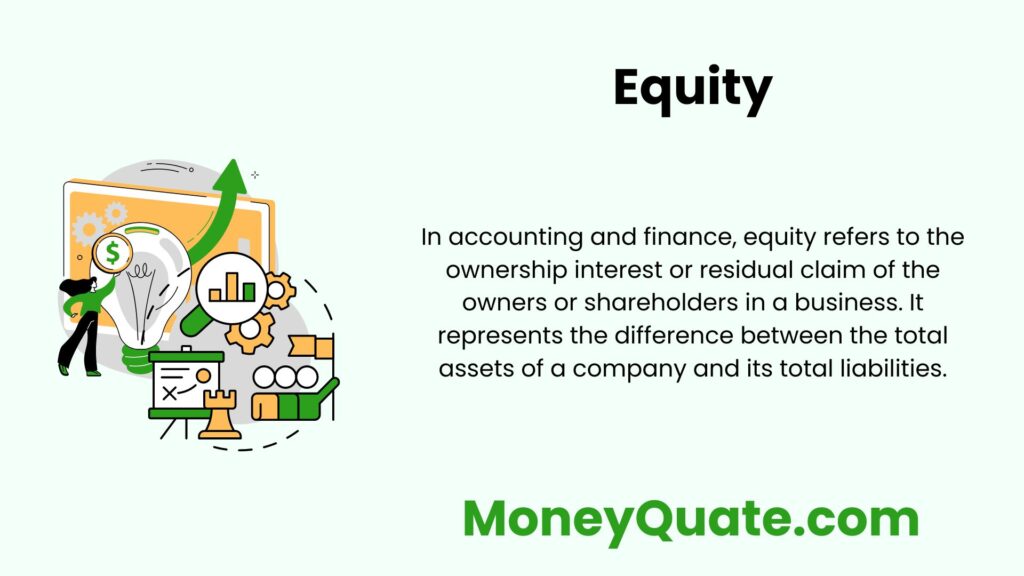Equity, in the context of finance and business, refers to the ownership interest or residual claim on assets that remains after deducting liabilities.
It represents the portion of a company’s total assets that belongs to its shareholders, often expressed in terms of shares or stock ownership.
Equity signifies the ownership stake individuals or entities hold in a company and encompasses various forms of capital contributed by shareholders, as well as retained earnings and accumulated other comprehensive income.

Contents
Components of Equity
Also known as contributed capital, share capital represents the amount of money raised by a company through the issuance of shares to investors.
It includes both the par value of shares and any additional capital paid by shareholders in excess of the par value.
Retained Earnings
Retained earnings are the accumulated profits that a company has retained or reinvested in its operations rather than distributing them to shareholders as dividends.
These earnings contribute to the company’s equity base and can be used for growth initiatives, debt repayment, or other strategic purposes.
Accumulated Other Comprehensive Income (AOCI): AOCI captures unrealized gains or losses on certain financial instruments and other items that are not included in net income.
It includes items such as changes in the fair value of available-for-sale securities, foreign currency translation adjustments, and gains or losses on derivative instruments used for hedging purposes.
Importance of Equity
Ownership Stake
Equity represents the ownership interest of shareholders in a company. Shareholders have certain rights, such as voting rights and the right to receive dividends, based on their equity holdings.
Financial Stability
Equity serves as a measure of financial stability and solvency for a company. A higher equity position relative to liabilities indicates a stronger financial position and greater ability to absorb financial shocks.
Capital Structure
Equity plays a crucial role in determining a company’s capital structure, which refers to the mix of debt and equity financing used to fund its operations. A balanced capital structure helps optimize the cost of capital and manage financial risk.
Investor Confidence
Equity value reflects investors’ confidence in a company’s future prospects and growth potential. Companies with strong equity positions are often viewed more favorably by investors and may have an easier time raising additional capital.
Analysis of Equity
Return on Equity (ROE)
ROE measures the profitability of a company relative to its shareholders’ equity. It indicates how effectively the company is utilizing shareholders’ funds to generate profits.
Equity Ratio
The equity ratio compares shareholders’ equity to total assets, providing insights into the proportion of assets financed by equity rather than debt.
Book value per share divides shareholders’ equity by the number of outstanding shares, giving investors an indication of the intrinsic value of each share.
Trend Analysis
Tracking changes in equity over time helps assess a company’s financial performance, growth trajectory, and capital allocation strategies.
Conclusion
Equity represents the ownership interest of shareholders in a company and encompasses various components, including share capital, retained earnings, and accumulated other comprehensive income.
Understanding equity is essential for investors, managers, and stakeholders in evaluating financial health, making investment decisions, and assessing shareholder value creation.